Decolonizing allyship is about shifting the narrative away from the self-centered, performative tendencies that many of us have been conditioned to associate with it. Today, we dove deep into what it truly means to center marginalized voices and practice allyship that dismantles power imbalances instead of reinforcing them. Allyship, in its current form, has been co-opted as a feel-good badge of honor, rather than a responsibility rooted in collective liberation. Let’s explore how we begin to disrupt that.
Three Key Takeaways:
Impact over Intent: Decolonized allyship centers impact over good intentions. What we do and how it affects others is far more critical than what we meant to do.
Pass the Mic: Relinquishing power is a key part of decolonization. Instead of leading, step back, amplify the voices of marginalized individuals, and create space for them.
Community is Key: Liberation is not an individual pursuit. We thrive through shared responsibility, collaboration, and community.
Understanding Allyship and Saviourism
We started by reflecting on the origins of the term “allyship”—a war term that inherently places people into positions of power over others. This positioning is problematic because it often leads to saviourism, where people think they can step in and save marginalized communities from oppression without actually dismantling the systems that cause harm. I emphasized that allyship isn’t a binary concept—no one is a ‘good’ or ‘bad’ ally. Instead, it’s about consistently reflecting on our actions and the implications they have.
The reality is that the systems of whiteness, capitalism, and heteronormativity are still alive and well, and they won’t be dismantled by performative allyship. The work must be rooted in collaboration, reflection, and passing the mic.
Decolonizing Allyship and Shared Responsibility
A major theme today was the need to relinquish power and create space for marginalized voices. Traditional allyship reinforces power dynamics because it allows allies to lead and dictate the terms of support. This is why I expressed my dislike for the term “allies” altogether—we don’t need people claiming titles; we need people showing up as good humans. As I said during the session, "Being a good human means listening, centering impact over intent, and relinquishing the need to be seen as a savior."
A critical part of decolonizing allyship is shared responsibility. Liberation is interconnected. When we show up, we do so knowing that no one is free until everyone is free. Jane Elliott, often celebrated in DEI spaces, represents a problematic dynamic—capitalizing on Black trauma without truly passing the mic. This is the exact behavior we must deconstruct.
Co-Creation, Accountability, and Agency
True allyship isn’t about coming in with solutions. It’s about co-creating solutions in collaboration with those who are directly impacted. I reminded the group that impact matters more than intent—we can have the best intentions and still cause harm if we’re not actively listening and learning. This is why accountability and agency are key to this work.
We also discussed the importance of finding spaces that align with where we are in our journey. Not every space will feel safe, and that’s okay—we don’t have to be everything to everyone. What matters is showing up where we can and doing the work to dismantle harmful systems.
Centering the Most Marginalized
A foundational takeaway was the importance of centering the most marginalized individual when designing inclusive systems. I shared that this individual is:
The unambiguously Black, queer, trans, disabled, poor, non-Christian, CHILD.
When we center their needs, we build systems that liberate everyone. By focusing on the most impacted, we create environments that allow for genuine inclusion, rather than superficial representation.
This requires us to dismantle systems that demand compartmentalization and force people into survival mode. Our liberation work should aim to address this holistically, ensuring that marginalized individuals feel seen and valued at every level.
Reflection Prompt:
When have I centered my intentions over the impact of my actions, and what lessons can I take from that experience?
Action Step/Practice Your Praxis:
Identify one marginalized voice or organization you can amplify today—whether by sharing their work, donating, or simply listening and learning.
Conclusion:
Decolonizing allyship is not about being perfect; it’s about showing up, doing the work, and learning as we go. It requires humility, accountability, and a willingness to be uncomfortable. By centering impact over intent and recognizing the interconnectedness of our liberation, we can begin to build communities where everyone feels valued and seen. As we move forward, let’s commit to showing up as good humans—not for the sake of being called allies, but because we know liberation is a collective effort.
Preview for Tomorrow: Day 19 — Unlearning Competition to Foster Collaboration
Tomorrow, we’ll dive into how supremacy culture thrives on competition and how we can disrupt this dynamic by embracing collaboration. We’ll explore practical strategies to foster collective success and create environments where collaboration, not competition, is the norm. Join us live for this exclusive session by becoming a paid subscriber, and if financial barriers exist, email me at Scholarships@DesireeBStephens.com to access support.
In solidarity and liberation,
Desireé B. Stephens CPS-P
Educator | Counselor | Community Builder
Founder, Make Shi(f)t Happen
Join me tomorrow 9:30 am EST for my next live video in the app

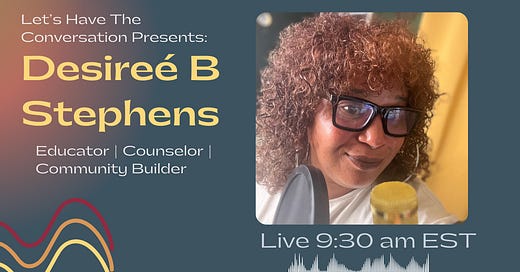


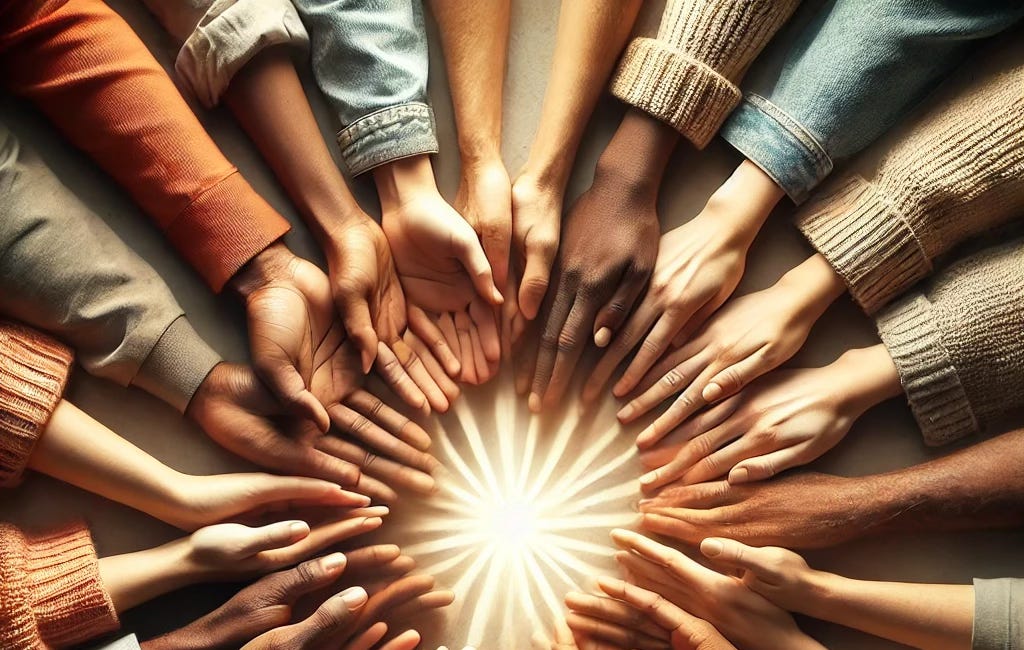
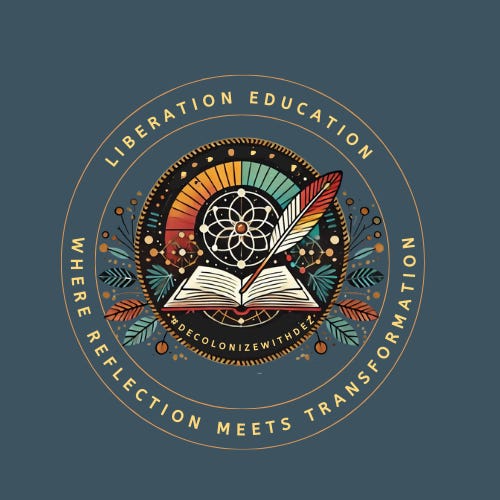

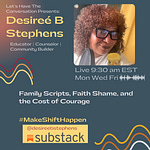


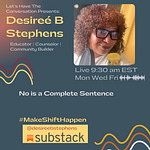


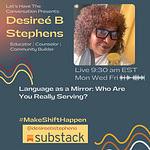
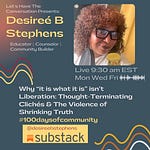
Share this post